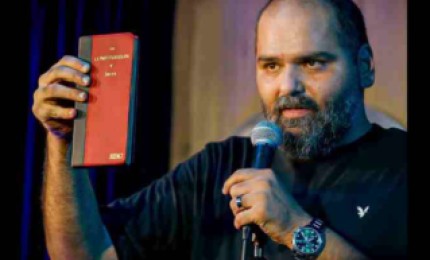The introduction sets the stage for the blog by acknowledging the dual nature of stage fright—an amalgamation of excitement and anxiety. You can delve into the anticipation that performers feel before taking the stage and how this emotion is both a challenge and an opportunity. The introduction highlights the transformative perspective that stage fright can be harnessed as a catalyst for remarkable performances.
In this section, you can delve into the psychology of stage fright. Explain how the heightened state of awareness and adrenaline rush can elevate a performance, but excessive anxiety can hinder it. Detail the physiological responses associated with stage fright, such as increased heart rate and sweating. Discuss the performance paradox—how embracing the energy of stage fright can lead to authentic and memorable performances.
Expand on the importance of preparation and rehearsal. Discuss how thorough familiarity with the script, lines, cues, and character motivations can boost an actor's confidence. Explain the process of breaking down a script, practicing lines, and immersing oneself in the character's world. Highlight how rehearsal not only minimizes the fear of forgetting lines but also contributes to a sense of mastery over the material.
This section, detail various mindfulness and relaxation techniques. Provide step-by-step guidance on deep breathing exercises, progressive muscle relaxation, and meditation. Explain how these techniques can help actors manage anxiety by calming the nervous system. Discuss the role of mindfulness in grounding actors in the present moment, allowing them to focus on the task at hand rather than succumbing to pre-performance jitters.
Explore the power of visualization and positive affirmations in managing stage fright. Provide examples of how actors can visualize successful performances in vivid detail. Explain the concept of using positive affirmations to reframe negative self-talk and boost self-confidence. Offer practical tips on incorporating visualization and affirmations into daily routines to cultivate a resilient mindset.
Delve into the concept of redirecting nervous energy into positive energy. Explain how physical warm-ups, movement exercises, and rituals can help dissipate excess energy and tension. Provide examples of dynamic stretches, vocal warm-ups, and engaging physical routines that can help actors release tension and harness the energy in a constructive manner.
Discuss the importance of connecting with the audience as a strategy to manage stage fright. Explain how viewing the audience as collaborators in the performance can alleviate self-consciousness. Provide tips on making eye contact, engaging with the audience's reactions, and using their energy to enhance the performance. Emphasize the shared experience of storytelling between actors and the audience.
Detail the role of breath and vocal exercises in combating stage fright. Explain how controlled breathing techniques can regulate heart rate and calm nerves. Describe specific vocal exercises that warm up the vocal cords and alleviate tension in the throat and diaphragm. Highlight how proper breath control and vocal exercises contribute to a confident and controlled stage presence.
Expand on the concept of adopting a growth mindset to navigate stage fright. Discuss the idea of embracing challenges as opportunities for growth and learning. Explain how viewing stage fright as a natural part of the performance journey can shift the focus from fear to improvement. Provide real-world examples of actors who have adopted a growth mindset and how it has positively impacted their performances.
Incorporate real success stories of actors who conquered stage fright and achieved remarkable success. Share anecdotes of performers who turned their pre-performance jitters into powerful and memorable performances. Highlight the strategies these individuals employed and how their triumphs serve as inspiration for other actors grappling with stage fright.
The conclusion synthesizes the strategies discussed in the blog, reiterating that conquering stage fright is a holistic process that involves preparation, mindset shifts, and practical techniques. Emphasize that stage fright is a universal experience shared by performers and that harnessing it can lead to exceptional performances. Encourage actors to approach stage fright not as an obstacle but as a stepping stone to their best work.
By incorporating these in-depth insights into the blog, you provide readers with a comprehensive guide on conquering stage fright. The detailed exploration of each strategy, combined with practical tips and real success stories, ensures that the blog serves as a valuable resource for actors seeking to manage their pre-performance jitters and deliver confident and impactful performances.

15 Ways to Make Money as a Singer: A Complete Guide to Monetizing Your VoiceEarning money as a singer requires more than just talent, it demands creativity, persistence, and a willingness to explore...
Read Blog
When Kunal Kamra's Humor Got Him Into Trouble: A Deep Dive into the Controversies of India's Most Fearless ComedianKunal Kamra Controversy: Laughter, Lawsuits, and the Limits of Free SpeechStand-up...
Read Blog
The Oscar race is always full of drama, but this year? It’s absolute chaos. From shocking controversies to unexpected winners, the battle for Best Picture at the 2024 Academy Awards has taken...
Read Blog
In the ever-changing landscape of entertainment, few transformations have been as dramatic and swift as the rise of internet comedians. What began as a platform for amateur funny videos has evolved...
Read Blog
Introduction: In the competitive world of entertainment and talent, having the right representation can make all the difference in launching and sustaining a successful career. Whether you're...
Read Blog.jpg)
While the world of modelling often dazzles with glitz and glam, it's also critical we discuss its darker shades, pulling the curtain back on some challenging realities. Today, let's embark on...
Read Blog